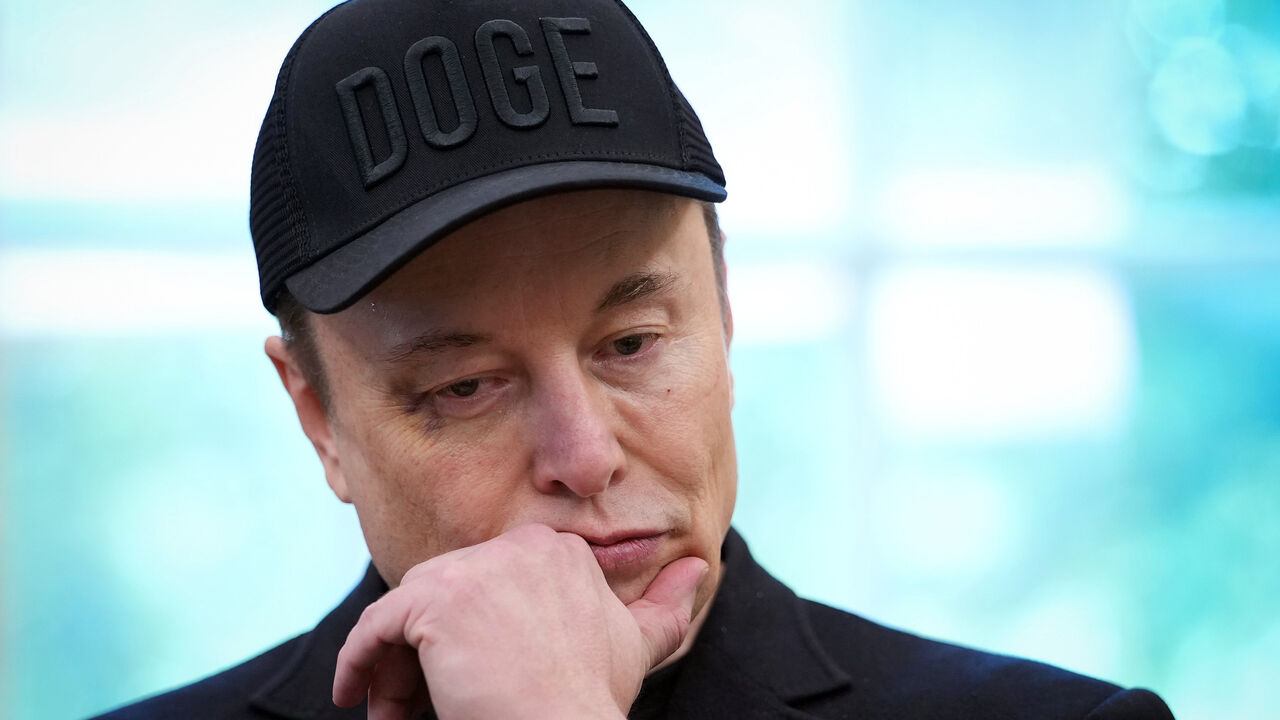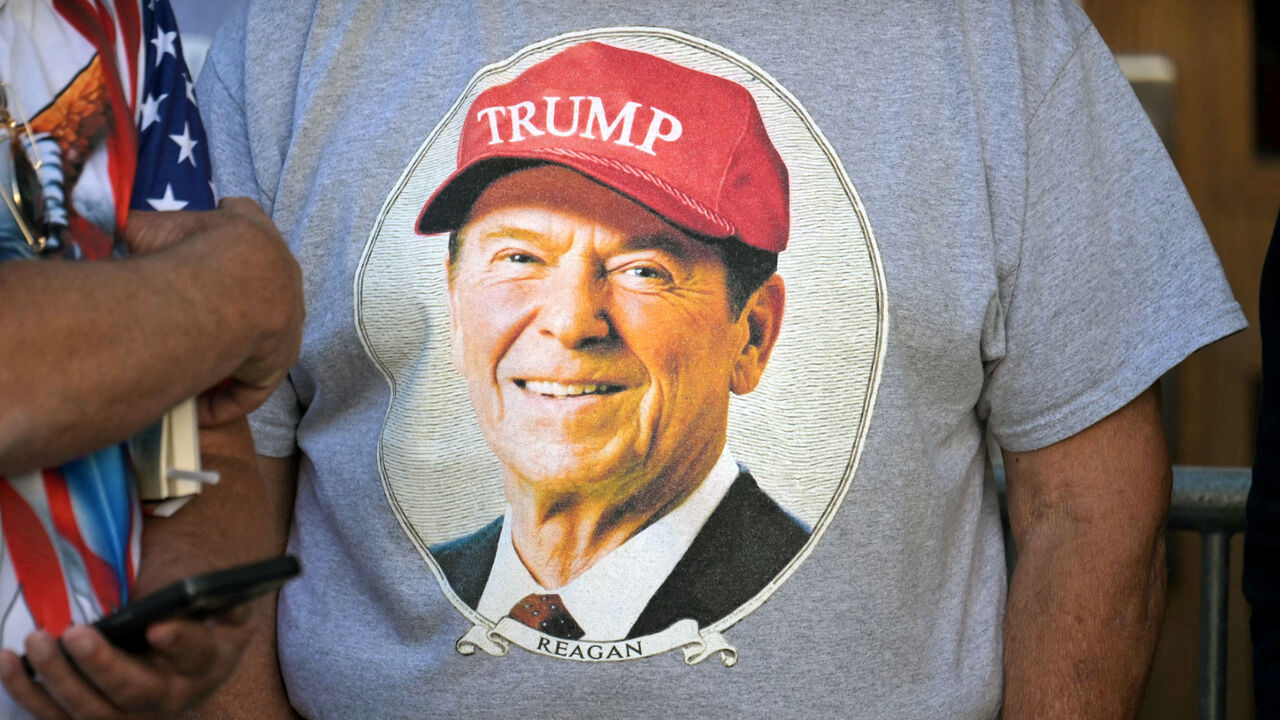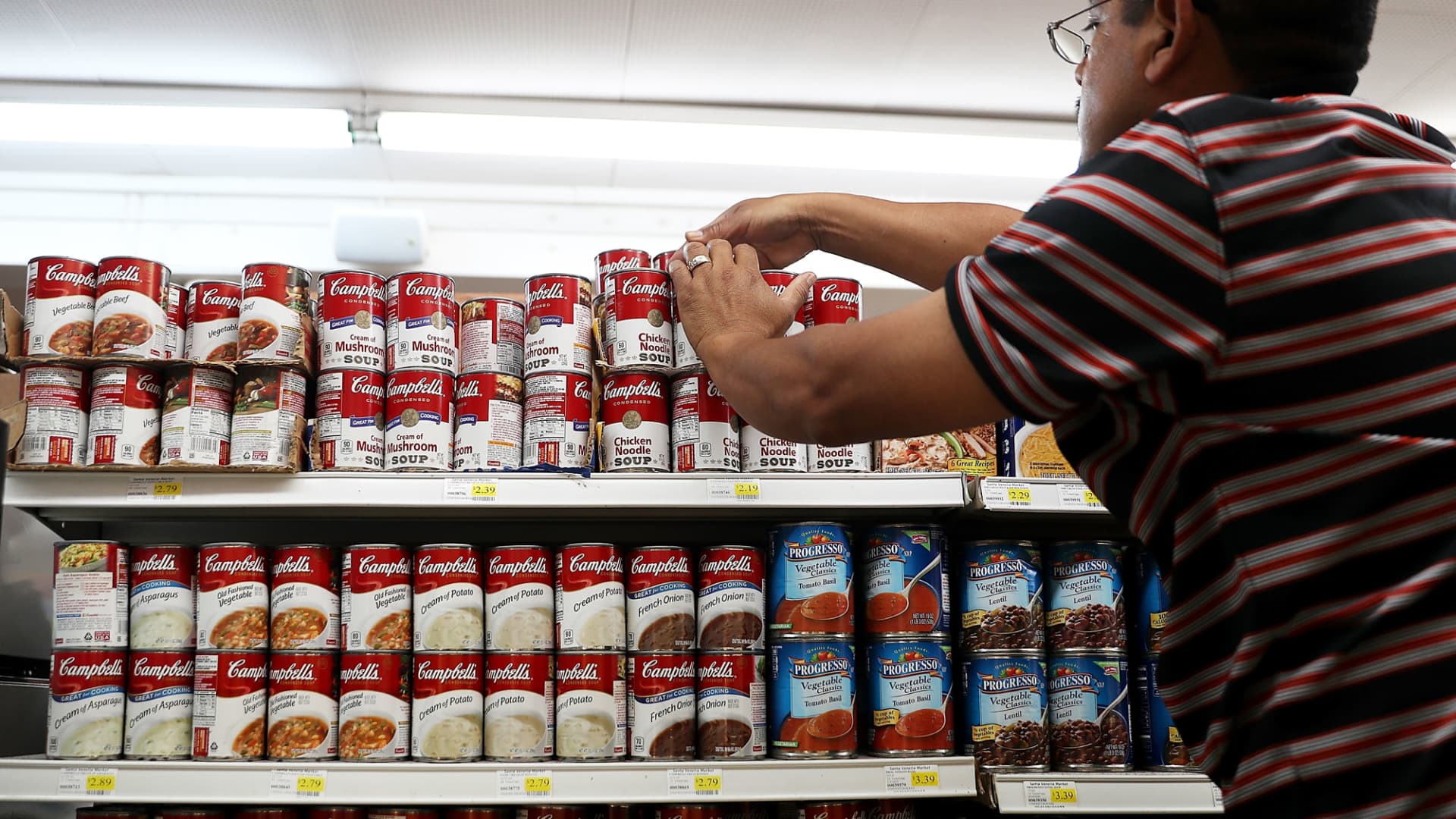A worker is making textile export orders at a production workshop of a textile enterprise in Binzhou, China, on July 8, 2024.
Nurphoto | Nurphoto | Getty Images
Donald Trump‘s election victory over Vice President Kamala Harris marks a historic return to the White House — an extraordinary political comeback that is likely to have seismic ramifications for the global economy.
Speaking to his supporters in Florida early Wednesday, Trump said an “unprecedented and powerful mandate” would usher in “the golden age of America.”
The former president’s litany of campaign pledges include steep tariffs, tax cuts, deregulation and a push to withdraw from key global agreements.
Analysts say it is hard to pin down the extent to which Trump will seek to implement these measures in his second four-year term, but the consequences of any will have clear repercussions across the globe.
Lizzy Galbraith, political economist at asset manager Abrdn, said it remains to be seen exactly what style of presidency investors can expect when Trump returns to the White House.
“Congress has a really big part to play in this,” Galbraith told CNBC’s “Squawk Box Europe” on Thursday.
“If Trump does have unified control of Congress, as is looking very likely and is what we expect to happen over the next few weeks and days, then he does have greater latitude to implement his tax-cutting agenda, his deregulatory agenda, for example, but we are also likely to see elements of his trade policy sitting alongside that.”
On tariffs, Galbraith said there were currently two schools of thought. Either Trump seeks to use them as a bargaining tool to gain concessions from other parties — or he delivers on his promise and implements them much more broadly.
Trump’s favorite word
Trump has previously described “tariff” as his favorite word, calling it “the most beautiful word in the dictionary.”
In an effort to raise revenues, Trump has suggested he could impose a blanket 20% tariff on all goods imported into the U.S., with a tariff of up to 60% for Chinese products and one as high as 2,000% on vehicles built in Mexico.
For the European Union, meanwhile, Trump has said the 27-nation bloc will pay a “big price” for not buying enough American exports.
Former US President Donald Trump arrives during a “Get Out The Vote” rally in Greensboro, North Carolina, US, on Saturday, March 2, 2024.
Bloomberg | Bloomberg | Getty Images
“Now, I think it is worth pointing out that we do think that in any situation which Trump is using tariffs quite often, his principal focus is going to be on China. And we don’t see Trump’s secondary tariff pledge — that baseline tariff, which would hurt European companies — as being all that feasible,” Galbraith said.
“So, it’s not necessarily our base case that you see something like a baseline tariff applied that would really hurt European goods although there is still a distinct possibility there that specific European products could be affected,” she added.
Analysts have warned that Trump’s plan to impose universal tariffs are highly likely to raise prices for consumers and slow spending.
Europe
Ben May, director of global macro research at Oxford Economics, said the direct impact of Trump 2.0 on economic growth is likely to be limited in the near term, “but masks major implications for trade and the composition of growth, and for financial markets.”
For instance, May said that in a scenario in which the more radical aspects of Trump’s policy agenda are adopted, particularly on tariffs, the impact across the globe will be “very sizable.”
“A key unknown is whether a clean sweep raises the risk that a Trump administration will push through more extreme policy measures, such as larger, less-targeted tariffs,” May said in a research note.
“Uncertainty over Trump’s stance on the conflicts in Ukraine and the Middle East also adds to the risk of greater instability in both regions, which could take a toll on regional, and even global, growth,” he added.
The prospect of a second Trump presidency had long been viewed as negative for Europe and the European Union more broadly.
Yet, analysts at Signum Global Advisors said in a research note on Wednesday that “the magnitude of that truth remains underappreciated.”
Indeed, they argued that several factors mean the EU is likely to be “the biggest loser of a second Trump era,” citing trade tensions, an ongoing frustration with key European policy decisions and Trump’s likely desire to double down on America’s advantage at attracting capital relocation.
Asia
Analysts at Macquarie Group said Thursday that, at face value, Trump’s election victory is “bad news for Asia,” particularly China, but the region is “more prepared” than in 2016, when he first moved into the White House.
A cargo ship is sailing towards the docking of a foreign trade container terminal in Qingdao Port, Shandong province, in Qingdao, China, on June 7, 2024.
Costfoto | Nurphoto | Getty Images
“A key tenet of Trump’s campaign was higher tariffs. While well telegraphed, the headwinds that are likely to sweep across Asia, particularly China, should spike volatility and compress multiples as uncertainty prevails,” analyst at Macquarie Group said in a research note.
“A counter-balance to this is a likely acceleration in China stimulus measures,” they added. “The Chinese government has already outlined its ambitions to support economic growth at the 5% level and address property market woes to support domestic consumer confidence.”
Mitchell Reiss, an American diplomat and distinguished fellow at the Royal United Services Institute (RUSI) think tank, said there are likely to be some differences to the Trump playbook this time round.
“I think that President-elect Trump has said that he would like to increase tariffs on China again until the playing field is level, in his view,” Reiss told CNBC’s “Squawk Box Europe” on Thursday.
“What was interesting the last time when Trump won was the number of China hawks that staffed his administration. This was a very tough administration in terms of personnel and in terms of their view of how they saw China as an adversary, expansionist in the South China Sea and contrary to American values and friends and allies around the world,” he continued.
“So, I don’t think that that’s going to change. I think that might be mitigated a bit by the economic interaction that we have with China, but I think that it is going to be a complicated relationship going forward.”

 Personal Finance1 week ago
Personal Finance1 week ago
 Blog Post1 week ago
Blog Post1 week ago
 Economics6 days ago
Economics6 days ago
 Economics1 week ago
Economics1 week ago
 Accounting6 days ago
Accounting6 days ago
 Personal Finance1 week ago
Personal Finance1 week ago
 Economics6 days ago
Economics6 days ago
 Personal Finance6 days ago
Personal Finance6 days ago
























